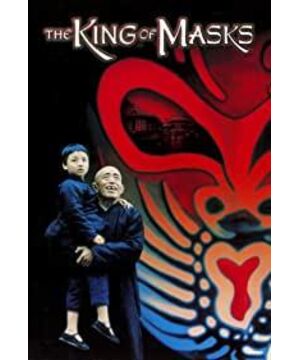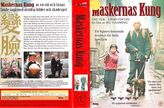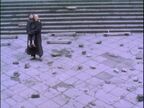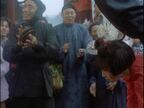The movie "A Hundred Birds and the Phoenix" itself, from the content of the story, to the character setting, scene arrangement, music and lighting... From the elements of the film, it doesn't look like a film shot after 2010, more like a film. A film from the 1990s, which is also a distinctive mark of being labeled as a "fourth-generation director" work, but this film is very temperamental, especially today! The story told in the film is very tense, clear but not simple, old but not outdated, traditional but not stale, stubborn but not stubborn, conservative but not backward. In general, it is a group of traditional folk artists, who insist on folk art, calm and calm in life, but have no choice but to face the rapidly changing environment and social atmosphere of the times. A sigh but not a despairing whimper. Use the inheritance of suona to show the relationship between art and the times. The local culture, human landscape, and the atmosphere of the times scattered in it all have the meaning of a documentary.
As a post-90s generation, "A Hundred Birds Towards the Phoenix" is the first and last public release of the fourth-generation director that our generation has officially come into contact with. For director Wu Tianming, we had to use the method of "reversing the movie" to find "Face Change", "Old Well" and "Life". It should have gone from "Change Your Face" to "A Hundred Birds Chaofeng", but for me it can only be from "A Hundred Birds Chaofeng" to "Change Your Face".
The exploration of artistic character is a consistent theme of the two films. Now the so-called performing artist, in the old society, is also the "player" and "actress". The social status of the practitioner itself is obviously inversely proportional to the degree of attention, which is very unimaginable at present. However, these so-called "players" and "actors" also have strong artistic integrity and integrity. This is also the biggest difference between the artists in the Republic of China and the previous artists. "Business girls don't know the hatred of the country, but they still sing the flowers of the backyard across the river." There are too few Liu Rushi-style actors, and the actors in the Republic of China can be said to be sturdy and hard-nosed. . The face-changing king and Boss Chen in "Changing Face" are both such characters. Whether it is a highly sought-after actor or a wandering face-changing king, they always sympathize with each other in their hearts. The emotional resonance between the actor and the actor should be why Chen Chen later The main reason why the boss wanted to give his life to save the face-changing king.
The inheritance of art is another major theme explained by the two films. Nowadays, the "movement" of intangible cultural heritage is in full swing, and the good ones are flocking. Since China's accession to the World Heritage Convention, China has been actively operating, and regards the inclusion of the World Heritage List as a political achievement. Has folk culture really been respected? I don't think so, what is "respected" is the business opportunities and interests behind it. Only from the embarrassing situation that the old folk art has no successor, this situation has not changed due to the upsurge of applying for the World Heritage List. I think the application for the World Heritage List is even a damage to the traditional ecology of artistic inheritance. In addition to attracting widespread attention and rescue video records, excessive attention is contrary to the integrity of the artist. What about the importance of the inheritance of the traditional mentoring system? If it follows the trend and caters to the changes of the times, art is no longer a classic. The art of being cheap is not worthy of respect. When everyone changes faces on the street, or blows suona, they no longer have artistry.
The teacher-student relationship is not simply equivalent to today's teacher-student relationship. The apprenticeship system is a way of inheriting traditional Chinese art. It doesn't matter whether you change your face, suona, or Peking Opera, it's all like this. There are also many ways to interpret the relationship between master and apprentice. The relationship between the grandfather and the son in the face-changing, the relationship between the father and the son in the Bainiao Chaofeng, is not easy to express. The great link is to pass on learning and teaching. You will see the strictness and methods of traditional Chinese masters, but there is life and warmth in between...
Times change, you can always hear that people's hearts are not ancient, and the world is getting worse. Speech, in fact, this sentence has been shouted for 2000 years. Times have changed, Confucius once criticized the behavior of exceeding the etiquette that did not conform to the etiquette of the Zhou Dynasty, but Hu Shi, Lu Xun, and the others degraded and suppressed the ancient parallel prose of official documents reconciliation, but now we strongly praise this style of writing. We have visited Kongjiadian, destroyed the Four Olds, fought bulls, ghosts, snakes and gods... But now we start to respect those who were destroyed and criticized... The paradox and irony of history are sometimes very sighing. But who can stay out of the times and be a free man? Facing the changes of the times, the persistence of folk artists and the inheritance of art are really worthy of respect! What remains unchanged is the eternal brilliance of human nature. History can prove that the beauty of human nature can always pass through the darkness, which is also the most profound portrayal of human nature in these two films. Therefore, please give a little space and a little respect to the folk artists who are still "maverick" and "do their own way" in this era.
View more about The King of Masks reviews








